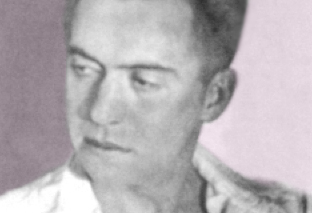
An irreverent Hart Crane pokes fun at fellow poets Louis Gilmore and Marianne Moore, the presiding editor of The Little Review, in this bawdy letter to Allen Tate. White Buildings, Crane’s first collection of poems, had just been published the year before.
To Allen Tate
Patterson, New York / March 14th, 1927
Dear Allen:
Miss Torrence won’t even take tea, you know, because she finds it too ‘stimulating’. I’ve been to her house, so I know. AND so, what can we expect! I got my verses back also. They seemed to be too spacious for the New Republic…. Your letter was of course a piece of folly, but justified. It won’t do Miss T any good, but it’s an admirable relief to me, and probably to you. I envy buckandwing dancers and the Al Jolsons of the world sometimes. They don’t have to encounter all these milksops… and they do please. They’re able to do some ‘good’ to somebody. And when they laugh people don’t think they are crying. Out here one reads the paper—one sees evidence mounting all the time—that there is no place left for our kinds of minds or emotions. Unless we can pursue our futilities with some sort of constant pleasure there is little use in going on—and we must apprehend some element of truth in our mock ceremonies or even our follies aren’t amusing. I’m looking around for some new sort of ‘avocation’, but having gone half-blind with conjunctivities (better known as ‘pink-eye’) I [am] waiting for the cornea to clear before taking any leap.
Phallus-es have been known to slyly leap out of some of Mr [Louis] Gilmore’s poems published in the Little Review, so Miss Moore had better watch out. But she probably doesn’t know one when she does encounter it! His poems, about as long as a cicada’s whirr, might make an amusing booklet. His plays are even briefer, I’m told.
Thanks for the NR [The New Republic] copies. Miss T had informed me of the matter, saying ‘you must look out for it (sic), so that I felt I might be standing in the middle of Seventh Avenue with a huge truck bearing down suddenly. Having bothered you so much lately I tho[ugh]t I’d worry Bill [Brown] for awhile, so I asked him to send me copies. I’ll certainly have plentEE now! I note that the one quotable paragraph (from the publisher’s standpoint) has been lopped off: the last, with the allusion to Whitman. The rest will be a sufficient warning to most readers not to read the book [White Buildings], for it’s one long dissertation on the subject of OBSCURITY.
The genial tactics of the editorial proofreader have even helped Frank on a little by falsifying his ms—at least the copy I hold. For instance, ‘the obscure poet he is likely for long to remain’ has been changed to read ‘ever to remain’. This not only alters the time-limit before my possible admission to the panting bosom of the generous reader, but changes the emphasis of the context in such a way that the reader infers the reviewer’s prophecy to be that I shall probably never write anything that is comprehensible! With the world flying into trillions of tabloids I probably shall not!
Your review of Laura [Riding] was just according to my estimates. If I’m as obscure to others as she is to me—then I won’t even rail any more at Miss Torrence.
Love, Hart
GOLDEN TEXT:
Wondrous the gods, more wondrous are the men,
More wondrous, wondrous still, the cock and the hen!
—Blake [“Imitation of Pope: A Compliment to the Ladies”]


